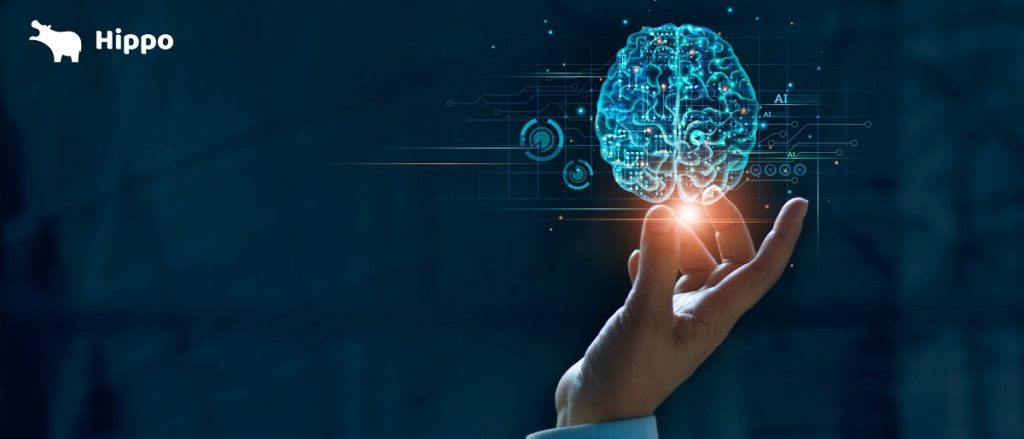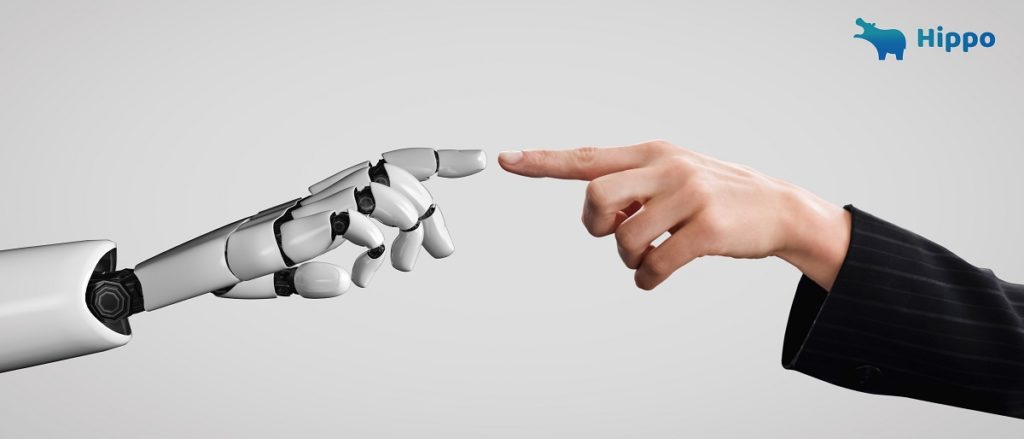
We’ve all watched iRobot and wondered if robots will take over the world and destroy life as we know it. Well, artificial intelligence has done quite the opposite for us. By drastically improving efficiency and allowing businesses to operate at a much faster rate, the introduction of artificial intelligence (AI) has transformed life for all of us.

- Advantages of Artificial Intelligence
- Benefits of Artificial Intelligence in the Workplace
- Impact of Artificial Intelligence on Employment
- What Jobs Will AI Create?
- Automated Jobs and Issues
- The Future Of AI
- Conclusion
More and more companies are adopting the use of AI all around the globe. Research shows that the adoption of AI by companies globally has jumped to almost 270% from four years ago. It has been forecasted that AI expenditure will double by 2020 reaching up to $79 billion.
Advantages of Artificial Intelligence

It is undeniable that computers are highly efficient in carrying out tasks that help save time and effort. Chatbots, for instance, have reduced the amount of time we spend waiting for someone from customer care to answer. AI has proved to be beneficial in almost every area and has transformed the world of technology to an unimaginable extent.
Benefits of Artificial Intelligence in the Workplace

The use of AI has indeed disrupted the workplace, but this disruption has not been negative.
- Manufacture at a faster rate: It lets companies use better functioning equipment to increase efficiency, and act as a tool to help employees work better.
- More importantly, it gives workers a chance to focus on more creative work.
- Create new roles in the line of manufacturing: Humans enable machines and machines to enhance human capabilities.
- Improved decision making: Using AI to detect errors and arrive at more accurate decisions can only enhance productivity.
- Medical Artificial Intelligence, for example, uses systems to detect, diagnose, treat, and predict many illnesses with a high level of accuracy. Similar technologies are being implemented in other industries too.
Impact of Artificial Intelligence on Employment

Many jobs were displaced even before the emergence of AI. There has been a decline in occupations such as travel agent, milkman, elevator operator, and more importantly, jobs involving mundane manual labour at factories.
There has been and will continue to be an increase in the use of AI systems in many fields such as manufacturing, retail, travel, data entry, medicine, and many others. Changes brought about due to this addition will only enhance the productivity of products and services.
Although many jobs have been displaced with the adoption of AI systems, research shows that it is also giving rise to new jobs. Experts say that humans will have to remain at the centre of the automated workforce by learning new skills rather than carrying out mundane tasks.
According to a survey conducted by Genesys, 70% of employees in the US have an optimistic attitude towards new technologies at the workplace using AI, such as chatbots, robots, and augmented realities.
What Jobs Will AI Create?

Leaders and workers need to be ready to brace the growth of technology and AI. Job roles and the skills necessary to carry them out have been and will continue to evolve over the next decade. Collaboration with AI systems doesn’t necessarily have to replace workers but can simply help them do their job better. It will also increase the need for data scientists, app developers, programmers, and other skilled workers.
A LinkedIn search for AI-related jobs shows 64,000 openings in the US and about 2,30,000 worldwide. Clearly, the future of AI is not as dim as many believed it to be. A research conducted by Deloitte suggests that the future of AI is one where “humans define the problem, machines help find solutions, and humans verify the acceptability of those solutions.”
Automated Jobs and Issues

The current economy is built on automated systems which means that the future will be too. Our interaction with chatbots has evolved so much over the last few years. Bots that used to sound very computerized before, now have a more human touch.
Emotional intelligence has been injected into automated systems to provide customers with a much more pleasant interaction. Traits such as empathy and tone of voice have been programmed into chatbots transforming our interactions with them.
Many e-commerce platforms have adopted the use of AI and chatbots to enhance customer interaction. Jungleworks is one such platform that has an integrated live chat forum and uses chatbots allowing it to engage, convert, and route leads in real-time. This in turn helps on-demand businesses increase the number of sales in a shorter period of time.
The Future Of AI

It might be a decade or so before the use of AI becomes the new normal. This works in favour of businesses because it gives leaders and workers ample time to ease into the transition. What is missing right now is an investment into training by company leaders.
A study conducted by Accenture shows that only 3% of leaders that felt their employees were not ready for AI, were reinvesting in training. Once this investment is made, the future of AI will be unimaginably productive.
Conclusion
AI is changing everything at a very fast rate. Almost every industry can apply some aspect of AI to simplify a process or solve a problem. The key to a productive future is to embrace technology and normalize its usage. Humans and technology working together could lead to endless possibilities. If you are curious about how AI can help you at the workplace, get in touch with us for a peek at Hippo.
If you enjoyed reading this, we’re sure you will also love checking out what we have in our resources. You can also head to our home page for more info!
Subscribe to stay ahead with the latest updates and entrepreneurial insights!

Subscribe to our newsletter
Get access to the latest industry & product insights.



















